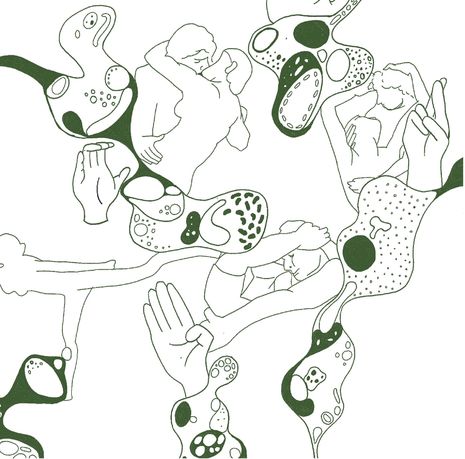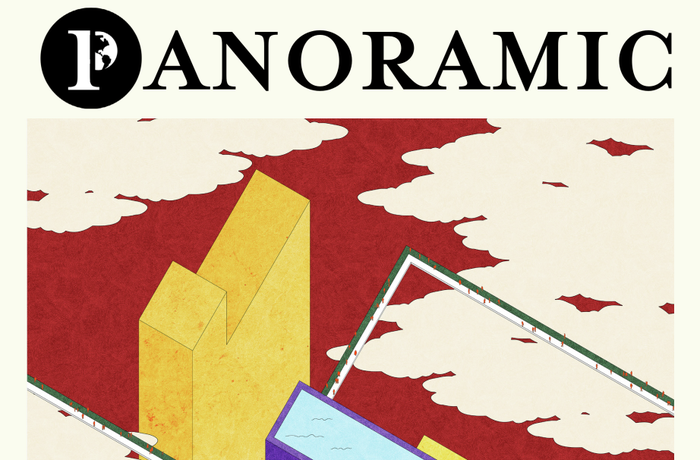The ‘constant motion’ of the CRoB’s Spring Issue
Margherita Volpato reviews the latest issue of CRoB, reflecting on the sense of impermanence that fills its pages

Like everyone else on Zinebridge, I was eagerly awaiting the arrival of the latest edition of the Cambridge Review of Books. As a third-year, the idea that the Cambridge I know and have experienced will naturally dissipate into only a memory is a scary concept, and I’m trying to avoid thinking about it. But I have been saved. The CRoB is back, more reflective and all-encompassing than ever. There is a sense of fleetingness to it, one that has been haunting me lately, and it is representative both of spring and the current state of the world around us. The editors, and all its writers, have managed to capture what it means to write about change, and how to embrace the temporary. In their editor’s letter, Magdalena and Georgia write: ’It is spring and everything is changing again. The landscape – both natural and social/political – are in constant motion. And so is this term’s Cambridge Review of Books – a motion so shifting and dynamic that it is difficult to instil into one theme, to catch into one idea, without losing an infinite variety of others.’ This issue invites you to remain present, so much so that I got lost in the experience of reading it.
“The editors, and all its writers, have managed to capture what it means to write about change”
This spring issue is filled with poetry, more so than any other issue I’ve had the pleasure of reading so far. The choice to highlight this form feels appropriate for evoking this theme of change. Bella Fox’s Et in arcadia ego is simply beautiful; she takes seemingly mundane images and renders them ethereal: ‘To think – again, always so silent it catches me – / This, it is 2am and I am smaller than the world that bears me up’. How did she manage to capture that one moment, when you’re pulled out of your own head into consciousness, so effortlessly? A similar poem that struck me was Will Randell’s untitled poem. It is a moment, it is action not yet processed, it is memory. It is striking. Jack Heath’s My Uncle Geoff is wrapped in time. also explores time and change wonderfully. When he writes ‘Half a dozen clocks […] clutter the air of his living room’, I fell in love with the idea that abstract nouns, specifically time, can clog the air. It made me think of how we are so concerned with filling it that we do not realise it passes us by, regardless.
The prose, another form in which the CRoB always delivers, was haunting. Margaux Emmanuel’s the lands behind the sliding doors shows us change in action: the inevitable change of growing up and growing old; the inescapable changes that come with social mobility and technology. But, most importantly, it shows how nature remains a powerful distributor of fate, the ultimate game-changer in our lives; we can never disconnect from place, no matter how we try. She shows how the soul, memory, and family are defined and changed by space and place. Karolina Fílová’s My Plastic Baby is, instead, the definition of an unreliable narrator, and I couldn’t get enough. Whatever you may think the title of this short story promises, be prepared for your expectations to be thrown out the window. All I can ask is that you please read it.
“The landscape – both natural and social/political – are in constant motion”
I have talked a lot about the poetry and prose, which have impressed, surprised, and moved me. But the CRoB is known for its essays, for offering students an opportunity to write and publish more than creative writing, and this issue does not disappoint. Bingbing Shi’s ’History and the Spy in Mai Jia’s The Message (2007)’ touches on such topics as the performativity of war and the malleability of history, through the often-unexplored lens of Chinese spy fiction. She explores how ‘histories are narrated and re-narrated under different circumstances’, which are not only political but personal. Juliette Bretan’s ‘An other touch, who touches me: Tango and the Solace of unexpected Encounter’ captured movement in every sense of the word. It is an essay that is as fast-paced as the tango that it focuses on, whilst also moving its readers with gorgeous introspection. I’m also always happy when someone quotes Edward Thomas.
Sophie Lamont’s ‘Sappho and the Ethics of Translation’ was a wonderful bridging of past and present, which explores how the act of translation is a continual process and more complicated than we may think. It focuses on how translation reflects on the author being translated, how we have constructed a Sappho out of translations, not original works. It builds beautifully on the CRoB’s last issue, where translation was included for the first time and opened up an entire conversation on how and why translation is so deserving of being championed.
As always, this is a review and cannot (for the sake of saving some elements of surprise) cover everything. Know that everything published in this edition is spectacular and deserves to be read, so thank you to all the contributors. But thank you also to the editors. They have constructed an extremely special issue. As I sit outside, lost somewhere and surrounded both by snow-topped mountains and flowering meadows, I am reminded of how gradual and yet sudden change is. I am reminded to remain in the present. But I am also invited to know that the present can be changed. I hope this issue resonates with other readers as much as it did with me.
 Interviews / You don’t need to peak at Cambridge, says Robin Harding31 December 2025
Interviews / You don’t need to peak at Cambridge, says Robin Harding31 December 2025 News / Downing investigates ‘mysterious’ underground burial vault 29 December 2025
News / Downing investigates ‘mysterious’ underground burial vault 29 December 2025 News / Unions protest handling of redundancies at Epidemiology Unit30 December 2025
News / Unions protest handling of redundancies at Epidemiology Unit30 December 2025 Lifestyle / Ask Auntie Alice29 December 2025
Lifestyle / Ask Auntie Alice29 December 2025 Features / ‘Treated like we’re incompetent’: ents officers on college micromanagement30 December 2025
Features / ‘Treated like we’re incompetent’: ents officers on college micromanagement30 December 2025









